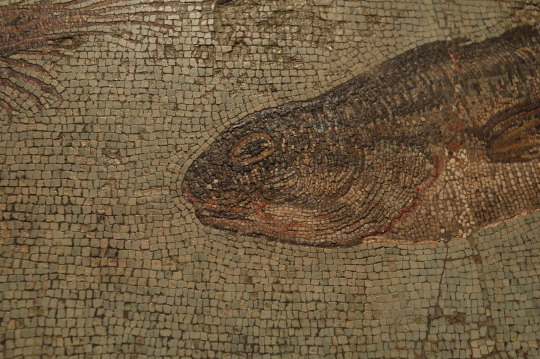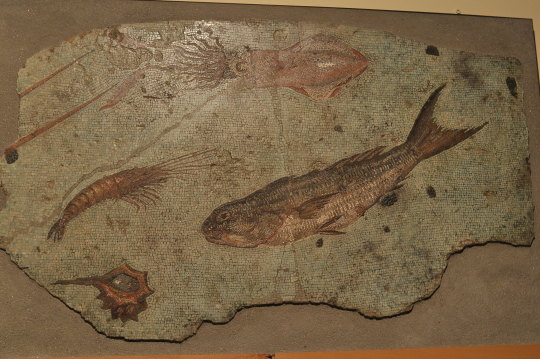#secular
Text


Mosaics da via Panisperna / Mosaics from the Via Panisperna in Rome, late 2nd - early Ist century BC
today at Centrale Montemartini, Rome, Italy
Photos: otdelnovpavel
#ancient rome#mosaic#2nd century bc#1st century bc#europe#secular#ok mosaics aren't wall paintings#italy#fish
4K notes
·
View notes
Text

The hijab controversy too has its roots in the Indian concept of religious exceptionalism. To resolve the controversy, the Indian state will need to abandon the pseudo-secular approach & rely on an approach based on the dual pillars of respect for individual/institutional rights.
#solution#hijab#controversy#indian#concept#religious#secular#state#claim#individual#institutions#secularism#true#right#attempt#operation#impact#aspect#community#respect#impulse#root#approach#case#doctrine#deal#at#weekly#act#dawa
581 notes
·
View notes
Text
hey parents. never fucking name your kid “christian” or other religious titles. you failed “respecting my child’s self agency” before they could even walk.
if that kid grows up to be an atheist—which it is YOUR RESPONSIBILITY to be prepared for, because your kid is their own person and not a mini-you—they might understandably hate it.
My middle name is “grace” after the grace of god, and at least in my own experience, it’s just a reminder that my parents had already demanded me to fit into their mold and check all their boxes on my own birth certificate.
#religion#religous trauma#apostate#parenting#parenting tips#ex christian#atheism#agnostic#christianity#christian parenting#atheist#atheist parenting#secular talk#secularism#secular#secular parenting#blios rants
72 notes
·
View notes
Text
My Unpopular Opinion about 'Deities' (mini vent:)
I strongly believe not all "gods" are healthy, infinite, benevolent, selfless, flawless, or all powerful who deserve special treatment just because of a human constructed status.
I treat anyone accordingly upon how they treat me, and you don't get respect unless you respect my space.
...
This is coming from someone who respects Anubis as a 'person' I connected with because he was respectful and mindful, and we just got along.
That being said, I don't believe in worship or even the concept of a "god" but just the status of celebrities.
From the ask box here and in metaphysical groups, I had too many people insisting to me that I should just bow down to them just because they're "gods." If I don't agree with them, a few tried to send these "gods" to smite me because I'm a non-believer.
You believing in a deity doesn't automatically make you better or special than other witches whom might be secular.
It makes me roll my eyes when I hear, "Gods are gods! You don't get to talk about them that way!"
The way I work, I need to get up and personal and not greet them ONLY because they're "gods/goddesses. But as people I just get along with.
I can understand some 'deities' are important in certain cultures that built it in the first place, but I just then see it as that -- culture/religion. Since I don't believe in the concept a 'god/goddess' I don't have to believe in their 'god/goddess', but I can still acknowledge what they got for it as strictly their culture.
...
I'm glad you adore what you do, and keep doing it if it gives you meaning and happiness. I respect what you're into at a healthy balance, as long as you respect mine. Please, everyone is different.
You wouldn't be any better as a proclaimed, radical Christian tried to shame you for not submitting to the Lord.
...
--
Edit:
I received a couple of threats just from this post alone in my ask box.
(One said she'll send Aphrodite to give me nightmares and sickness, while the other got really upset and threatened me with actual violence to change my mind)
If you are representing your "gods/goddesses" through how you're acting like a derelict -- I'm glad you have so much faith in your 'gods' to protect you, but nothing will shield you from the consequences of being an intolerant, toxic person. I'm sure they'll step aside and let things slip...unless the "god/goddess" is toxic themselves.
#deity#witchcraft#witch#spirit companion#spirit work#witchblr#devotees#gods and goddesses#secular witch#secular#spirituality#you do you
19 notes
·
View notes
Link
75 notes
·
View notes
Text
its been 2000 years guys... let's face it, Jesus holy-ghosted us
9 notes
·
View notes
Photo

Cut off from his religious, metaphysical and transcendental roots, man is lost; all his actions become senseless, absurd, useless.
- Eugene Ionesco
Oxford University Press (OUP) is the university press of the University of Oxford. It is the largest university press in the world, and its printing history dates back to the 1480s. Having been officially granted the legal right to print books by decree in 1586, it is the second oldest university press after Cambridge University Press.
Last year the University Press announced it would be changing its branding and logo which had served it so well and was iconic the world over. The new branding was designed by an agency named Superunion with refinements by typographer and logo designer Rob Clarke.
The new logo featured Oxford’s name and an icon showing the turning pages of a book forming the ‘O’ of the popular university press. It represented Oxford’s heritage as a print publisher, and its transformation to a future of multi-format content publishing. Or so they say.
The old OUP logo had the university coat of arms in which was the Latin quote: Dominus illuminatio mea. This is Latin for 'The Lord is my light’. It is the incipit (or opening words) of Psalm 27 from which the motto of the university was taken.
That motto has been in use there since at least the second half of the sixteenth century, and it appears in the coat of arms of the university. The origins of the motto shdes light (no pun intended) on the origins of the mission of the university as it was back then. Roman Catholic priest and theologian Ivan Illich explained that ancient university motto was being formulated around a time when scientists were progressively replacing the concept of vision as a gaze radiating from the pupil by the concept of vision as the retinal perception of an image formed by reflected sunlight. Illich wrote, “To interpret De oculo morali, the relationship of things to God "who is light" must be understood. This is the century (i.e. the thirteenth century) suffused by the idea that the world rests in God's hands, that it is contingent on Him. This means that at every instant everything derives its existence from his continued creative act. Things radiate by virtue of their constant dependence on this creative act. They are alight by the God-derived luminescence of their truth.”
It seems the Oxford University Press, in all its wisdom, threw out hundreds of years of tradition in the name of digital transformation to advance knowledge to all fours corners of the globe. In other words just another bland soulless corporate entity. As one critic said Oxford had gone from ‘maybe god will read your book, but no one else’ to ‘look here’s a visual representation of the drain your book will disappear down’.
#eugene ionesco#ionesco#quote#roots#oxford university press#oup#oxford#university#brand#branding#secular#sacred#heritage#custom#books#publishing#education
78 notes
·
View notes
Text
30 notes
·
View notes
Text
"Why Communism and Religion are incompatible"
Religion is the opium of the people,' said Karl Marx. It is the task of the Communist Party to make this truth comprehensible to the widest possible circles of the labouring masses. It is the task of the party to impress firmly upon the minds of the workers, even upon the most backward, that religion has been in the past and still is today one of the most powerful means at the disposal of the oppressors for the maintenance of inequality, exploitation, and slavish obedience on the part of the toilers.
Many weak-kneed communists reason as follows: 'Religion does not prevent my being a communist. I believe both in God and in communism. My faith in God does not hinder me from fighting for the cause of the proletarian revolution.'
This train of thought is radically false. Religion and communism are incompatible, both theoretically and practically.
Every communist must regard social phenomena (the relationships between human beings, revolutions, wars, etc.) as processes which occur in accordance with definite laws. The laws of social development have been fully established by scientific communism on the basis of the theory of historical materialism which we owe to our great teachers Karl Marx and Friedrich Engels. This theory explains that social development is not brought about by any kind of supernatural forces. Nay more. The same theory has demonstrated that the very idea of God and of supernatural powers arises at a definite stage in human history, and at another definite stage begins to disappear as a childish notion which finds no confirmation in practical life and in the struggle between man and nature. But it is profitable to the predatory class to maintain the ignorance of the people and to maintain the people's childish belief in miracles (the key to the riddle really lies in the exploiters' pockets), and this is why religious prejudices are so tenacious, and why they confuse the minds even of persons who are in other respects able.
The general happenings throughout nature are, moreover, in no wise dependent upon supernatural causes. Man has been extremely successful in the struggle with nature. He influences nature in his own interests, and controls natural forces, achieving these conquests, not thanks to his faith in God and in divine assistance, but in spite of this faith. He achieves his conquests thanks to the fact that in practical life and in all serious matters he invariably conducts himself as an atheist. Scientific communism, in its judgements concerning natural phenomena, is guided by the data of the natural sciences, which are in irreconcilable conflict with all religious imaginings.
In practice, no less than in theory, communism is incompatible with religious faith. The tactic of the Communist Party prescribes for the members of the party definite lines of conduct. The moral code of every religion in like manner prescribes for the faithful some definite line of conduct. For example, the Christian code runs: 'Whosoever shall smite thee on thy right cheek, turn to him the other also.' In most cases there is an irreconcilable conflict between the principles of communist tactics and the commandments of religion. A communist who rejects the commandments of religion and acts in accordance with the directions of the party, ceases to be one of the faithful. On the other hand, one who, while calling himself a communist, continues to cling to his religious faith, one who in the name of religious commandments infringes the prescriptions of the party, ceases thereby to be a communist.
The struggle with religion has two sides, and every communist must distinguish clearly between them. On the one hand we have the struggle with the church, as a special organization existing for religious propaganda, materially interested in the maintenance of popular ignorance and religious enslavement. On the other hand we have the struggle with the widely diffused and deeply ingrained prejudices of the majority of the working population.
N. Bukharin & E. Preobrazhenky, ABC of Communism, Chapter 11: Communism and Religion
#communism#socialism#marxism#leftism#leftist#communist#marxist#socialist#anti capitalism#dismantle capitalism#religion#atheist#atheism#secular#secularist#secularism#antitheist#anti theist#antitheism#anti theism#communism and religion are not compatible#against religion#religion is a scam#christianity#christians#abrahamic religions
5 notes
·
View notes
Text
By: Jacqui Frost
Published: Jan 11, 2024
Shared testimonies, collective singing, silent meditation and baptism rituals – these are all activities you might find at a Christian church service on a Sunday morning in the United States. But what would it look like if atheists were gathering to do these rituals instead?
Today, almost 30% of adults in the United States say they have no religious affiliation, and only half attend worship services regularly. But not all forms of church are on the decline – including "secular congregations," or what many call "atheist churches."
As a sociologist of religion who has spent the past 10 years studying nonreligious communities, I have found that atheist churches serve many of the same purposes as religious churches. Their growth is evidence that religious decline does not necessarily mean a decline in community, ritual or people's well-being.
What is an atheist church?
Secular congregations often mimic religious organizations by using the language and structure of a "church," such as meeting on Sundays or hearing a member's "testimony," or by adapting religious language or practices in other ways.
For example, there are a growing number of psychedelic churches, which cater to people looking to experience spirituality and ritual through drug use.
There are also secular organizations that promote the idea that people can live forever, such as the Church of Perpetual Life. Members believe they can achieve immortality on Earth through radical life-extension technologies such as gene editing or cryonic preservation – freezing bodies after death in hopes that they can someday be resuscitated.
These secular congregations often appeal to atheists and other secular people, but their main purpose is not promoting atheism.
However, "atheist church" organizations like the Sunday Assembly and the Oasis explicitly celebrate atheists' identities and beliefs, even though not everyone who attends identifies as an atheist. Testimonies and activities extol values like rational thinking and materialist philosophies, which promote the idea that only physical matter exists.

[ British comedian Sanderson Jones leads the Sunday Assembly, a "godless congregation" for atheists that started in England, at Wooly Mammoth Theatre in Washington, D.C. ]
There are also long-standing humanist and ethical communities that promote secular worldviews and provide secular ceremonies for major life transitions, like births, funerals and weddings. The American Humanist Association, for example, describes its values as "Good without a God." And for decades, Unitarian Universalist congregations, which grew out of Christian movements, have drawn on teachings from both religious and nonreligious traditions, without imposing specific creeds of their own.
But there has been a recent rise in secular congregations that explicitly mimic religious organizations and rituals to celebrate atheistic worldviews. Many have just one or two chapters, such as the Seattle Atheist Church and the North Texas Church of Freethought.
However, Sunday Assembly and the Oasis have networks with dozens of chapters, and Sunday Assembly has been dubbed the "first atheist mega-church". Many chapters of Sunday Assembly see hundreds of attendees at their services.
Testimonies, singalongs – but nothing supernatural
Many features of atheist churches in the U.S. are directly borrowed from religious organizations. At Sunday Assembly, where I spent three years doing research, services include collective singing, reading inspirational texts, silent reflection and collecting donations. They center around a central lecture given by a member of the congregation or a member of the larger local community. I attended one service where an astronomer gave a talk about the New Horizons spacecraft's mission to Pluto. At another service, a member of a local community garden organization talked about building community through her community garden program.
Atheist church organizers I met told me that they intentionally borrow the structure of a church because they see it as a good model for building effective rituals and communities. More generally, the structure of a "congregation" is popular and familiar to most attendees.
However, there are key differences. Sunday Assembly has no hierarchical structure, and there is no pastor or minister, meaning that decisions are made by the community. Attendees share duties for running the services and finding speakers and readings.
The other key difference is the complete lack of reference to the supernatural. Lectures and rituals I have encountered at atheist church services are centered around affirming atheistic beliefs, celebrating science, cultivating experiences of awe and wonder for nature, and creating communities of support.
Sociologists of religion call these practices "sacralizing the secular" and "secular spirituality": activities that enable nonreligious people to express their shared beliefs and cultivate a sense of belonging and purpose.

[ British comedians Sanderson Jones, right, and Pippa Evans, second from left, co-founders of The Sunday Assembly, an atheist service held at a converted church, lead the congregation in song during a service in north London, on March 3, 2013. Echoing with joyful song and with a congregation bent on leading better lives, this London church is like any other — except there's no mention of God. ]
One example is collective singing: borrowing a familiar aspect of religious services that can give members a sense of transcendence. Most Sunday Assembly chapters have church bands that lead singalongs to pop songs like "Livin' on a Prayer" by Bon Jovi and "Brave" by Sara Bareilles. When the astronomer talked to Sunday Assembly about NASA's mission to Pluto, the congregation sang "Across the Universe" and "Lucy in the Sky with Diamonds" by the Beatles to reinforce their reverence for the vastness of the universe.
Another borrowed ritual is the sharing of testimony. Many Sunday Assembly services involve a member standing in front of the congregation to share something they learned recently, to express gratitude, or to affirm their atheistic beliefs by sharing why they left religion.
Some atheist communities, although not Sunday Assembly, even engage in "debaptism" ceremonies in which they renounce their former religion. Some atheists I interviewed sent their debaptism certificates to their former churches as a way of solidifying their new nonreligious identity.
Change ahead?
As rates of religious affiliation continue to decline, many scholars and pundits have argued that there will be a decline in community engagement and other important indicators of well-being, such as health, happiness and people's sense of meaning and purpose.
However, atheist churches are an example of how nonreligious Americans are finding new ways to meet those needs. A member of Sunday Assembly told me: "I honestly can't think of a word to describe it. I mean, 'life-changing' sounds stupid, but Sunday Assembly just helped so much. I've always struggled with depression, and I'm so much happier now that I have this group of friends who share my beliefs and who are trying to do good out in the world with me."

[ Members of the congregation attend as British comedians Sanderson Jones and Pippa Evans, co-founders of The Sunday Assembly, an atheist service held at a converted church, lead the service in north London, on March 3, 2013. Non-believers worldwide have contacted organizers to ask how they can set up their own branch. ]
Atheist churches are still fairly new, but studies have shown that participation in them and other types of atheist organizations can bring social and emotional benefits. In particular, it can help atheists buffer the negative effects of experiencing stigma or discrimination.
Whether the atheist church trend will continue remains to be seen. But such churches' recent growth is evidence that they can work much like religious organizations to build community, cultivate rituals and bolster well-being in a time of religious change.
==
Yeah, I don't know about this.
#Jacqui Frost#atheism#atheist church#secular#secular congregation#decline of religion#rise of the nones#leaving religion#empty the pews#secularism#no religion#irreligion#non religious#religion is a mental illness
7 notes
·
View notes
Text



Mosaics da via Panisperna / Mosaics from the Via Panisperna in Rome, late 2nd - early Ist century BC today at Centrale Montemartini, Rome, Italy
Photos: Carole Raddato / wikimedia commons / CC BY-SA 2.0
#ancient rome#mosaic#2nd century bc#1st century bc#fish#europe#secular#italy#ok mosaics aren't wall paintings
967 notes
·
View notes
Photo

47 notes
·
View notes
Text
Fundraising commissions!
Hi! I'm fundraising for my club, the Secular Student Alliance. We're trying to raise 1304$ by May 15th so we can attend the national Secular Student Alliance conference in St. Louis, Missouri. Secularism has been a passion of mine since I was a child, and I think that it's an important part of American society. If this is something you're interested in or you'd like to help me go to something that's really important to me, I would really appreciate your support.
https://secure.givelively.org//donate/secular-student-alliance/the-future-of-secular-leadership-sponsor-a-student-for-the-2023-ssa-national-conference/moth-porco
Even a dollar would be a huge help, but if you'd like something in return for your money, I'm opening fundraising commissions!
Rules:
15$ for a sketch commission
25$ for flat color
extra 5$ per figure
I will not do shading commissions for the sake of being able to complete this in a timely manner. Sorry about that!
-- fandom commissions fine, just provide a reference of the character.
-- I'm very good at character design! It's probably the best thing I can do. If you would like an adoptable, I think I'd be very good at that.
-- I will draw suggestive art but not detailed NSFW. This is only because I'm not that good at the anatomy involved yet. If you have an idea you can DM me and we can talk about it!
-- Gore is alright.
-- I reserve the right to not draw an idea.
If you would like to commission me, tell me and we'll hash out the details and then when once you donate, I'll get started on your picture.




Examples of characters I've drawn.


Examples of more complicated artwork.
#commissions open#adoptables#fundraising#givelively#secular student alliance#atheism#secularism#secular#character design#art commissions#commission info#moth draws
16 notes
·
View notes
Note
Ur views on the gods are extremely disrespectful...gods aren't celebrities! They are beyond comprehension. U should not downgrade people who devote themslves to their beloved deities!
Blessed be!
Fruit cup, let me just say...
You got your views, I got mine. What I believe in is not really your business. Everyone has different views about these things.
I think they are mere celebrities in the astral world that humans give a lot of energy to, or...they're strong egregores. I do not believe all of them are loving, unconditional, or typically good beings in my book at all.
Secularism and atheism exists in these categories...
You know...the whole "it's beyond your comprehension" explanation sounds like a cheap weapon that hardcore religious people like to use. I can understand and respect the significance of a "deity" associated with culture, but I don't have to believe in it by its absolute. I still have critical thinking on the side to develop my own perspectives.
You know...like...having a different opinion.
...It's pretty cool to have a different opinion, isn't it. You should try it. It's great.
I'm not going out of my way to harassing devotees for their craft. They do their own thing, while I do mine. I don't care as long as they either mind their own business or play nice. Just because I don't agree with some of their beliefs doesn't mean I'm am going to go out of my way to dance on their pages mocking them. That's just being rude and classless.
If you don't like my views about certain things, then please just block me.
Nothing is stopping you from doing that right now.
#witchcraft#spirit work#witchblr#ask the witch#deity#deity work#deity worship#secular witch#secular#secularism#having different opinions#gods and goddesses#paganism
8 notes
·
View notes
Text

Temple of Human Civilization | Union Station, Washington DC
6 notes
·
View notes
Note
How can you call yourself secular? G-d the shit you espouse makes me think you’d be a Nazi if you weren’t born Jewish. Maybe you shouldn’t be secular, I think you need G-d to help you understand the world in which you live.
WTF are you gabbering on about? Calling a jewish person a Nazi is bad enough, but pretending to be god-fearing begs the question, what kind of hateful god do you pledge allegiance to?
#israel#secular-jew#jewish#judaism#israeli#jerusalem#diaspora#secular jew#secularjew#islam#islamist#antisemitism#anonymous#answered#nazi#islamists#islamic jihad#jihad#jihadi#secular#secularism#secular talk#tumblr insults#harassement#harassment
5 notes
·
View notes